"Consumers are amazed by the variety of flowers that are grown on US soil and last year, we even received requests from florists", says Rebecca Rowley of Ingadi Flower Farm, a small-scale flower grower in Chelsea, AL. In 2020, they decided to use 1 acre, of their 5-acre property, to grow flowers, which are mainly dedicated to the floral classes Rebecca organizes. However, since last year, she has increasingly received requests to sell the flowers. Therefore, they decided to offer wholesale too, and more ideas are in the pipeline. According to Rebecca, all thanks to the pandemic. "People started to appreciate flowers more and they have become fascinated with the locally grown flowers as they have never seen them at the grocery store or florist shops."
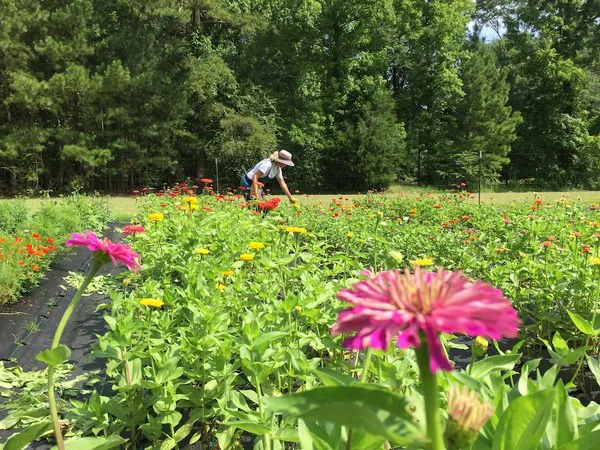
Rebecca in the field. The number of small scale flower farmers (in all sizes, from 1/4 acre to 20+), is increasing in the US over the last years, but exploded during the pandemic, she explains.
Why a flower farm?
Rebecca comes from a long tradition of farmers on both sides of her family and is a certified Master Gardener. Together with her husband Bill, they were garden directors for a foster facility where they both grew seedlings to give away to their community for several years. They had never grown cut flowers before but learned it in 2019. After a few seasons of growing and selling at farmer’s markets, the passion stayed. Unfortunately, Covid-19 threw a wrench into the gardening job and both found themselves at home, wondering what the future held for them. Another wrench was thrown when Rebecca realized she needed to be available to help her mother, the sole caregiver to Rebecca’s father, who suffers from Alzheimer's. After evaluating all their options, they put what little they had into starting a flower farm in 2020.
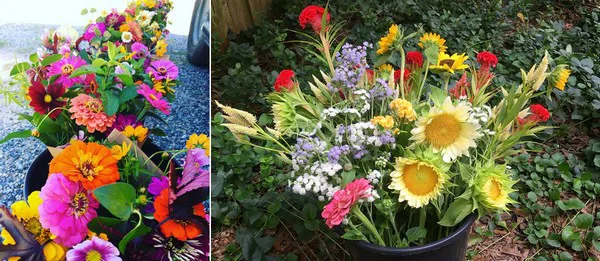
On the left: summer bouquet. On the right: wholesale DIY bucket.
People amazed by the different styles of flowers
Rebecca uses the majority of her own-grown flowers for the flower arranging classes, and she clearly notices that people got to appreciate flowers more during the pandemic. On top of that, she sees that they are highly interested in the locally grown flowers. "The number of participants is increasing all the time and the funny thing is that they mostly come to see the different variety of flowers, arranging is just the bonus. During the class, I give them more info about the flowers, how they are grown, and how they are season dependent. It is so interesting to see that almost none of my participants know that the majority of the flowers that are sold in the US are imported."
And florists too
Florists seem to be amazed by the locally grown flowers as well. In times when it was difficult to import flowers, Rebecca received several requests from florists. "I was quite surprised because florists usually have their own place to get the flowers, that's why most of the time it is difficult to get a foot in the door. But due to logistical challenges and the lack of flowers, they asked us for flowers and even they were happily surprised by our flowers." And florists are still contacting Rebecca. For this reason, they decided to start selling wholesale as well. "Every week, we will send out an email with what we have."
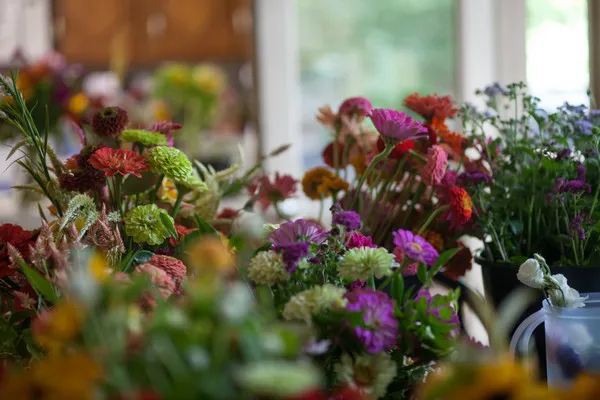
Growing flowers and plants in Alabama
Growing flowers in Alabama isn't that easy, she explains. "The large flower farms are based in California or Washington, so it was quite a challenge to learn how to grow flowers in the Alabama climate, which is warmer and more humid." Rebecca grows a large variety of flowers from seed and constantly trials new varieties. Besides flowers, she also grows several tender annuals and perennials, also from seed. "I do homeschool workshops and we hope to start a community garden, teaching people how to grow them."
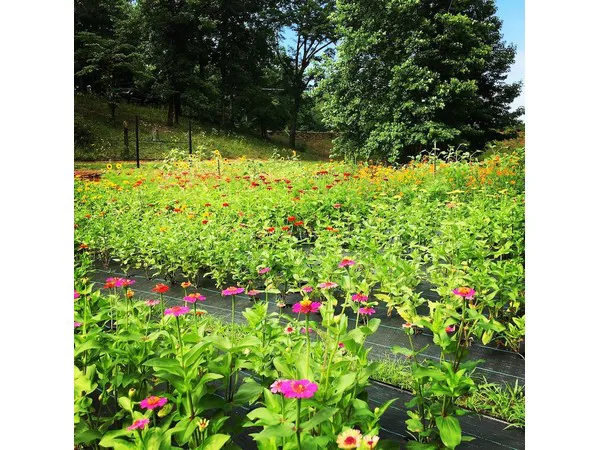
Wedding trends
When looking at wedding trends, Rebecca notices a change in style. "Covid changed the way weddings are organized. More are taking place outside and the brides seem to prefer the brighter colors. I do not know if it is a big or national trend, but it is definitely a trend we are seeing."
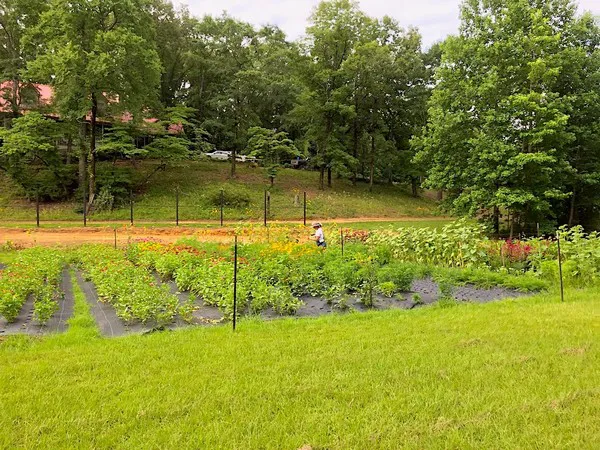
Flowers and plants - not a trend but a lifestyle
Covid fueled the appreciation of flowers and plants and, like many in the industry, Rebecca is certain that the trend, or better said lifestyle, is here to stay. "Regarding the garden, we are now going into the third season since the pandemic and we've seen the demand for plants increasing. Many people I meet did not have a garden before but are now loving it. In my opinion, it is not a trend anymore, but flowers and plants are now becoming part of their lifestyle."
More plans in the future
Rebecca is happy that their farm, the classes and workshops have become such a success and they are eager to expand. "We have the space to expand, not only for the flower farming area, but we are working on a walking garden, where people will come and possibly even use for some events."
For more information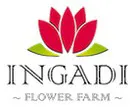
Ingadi Flower Farm
Rebecca Rowley
Email: rebecca@ingadiflowerfarm.com
https://ingadiflowerfarm.com/
